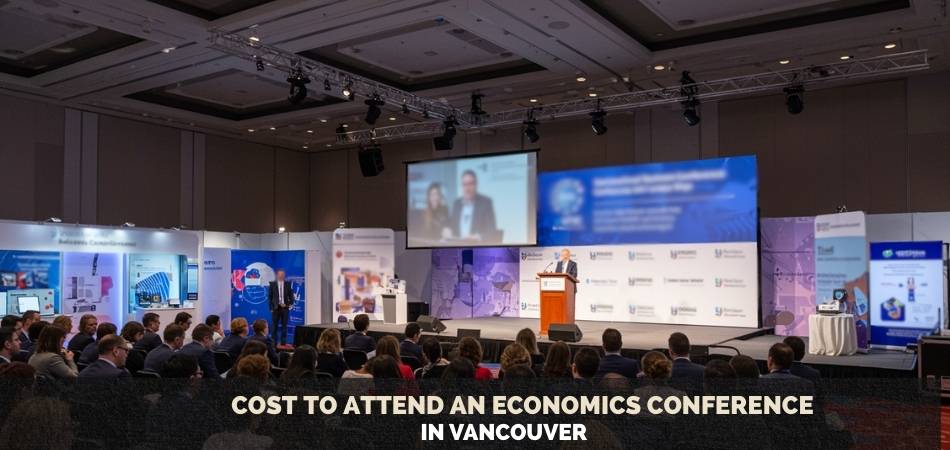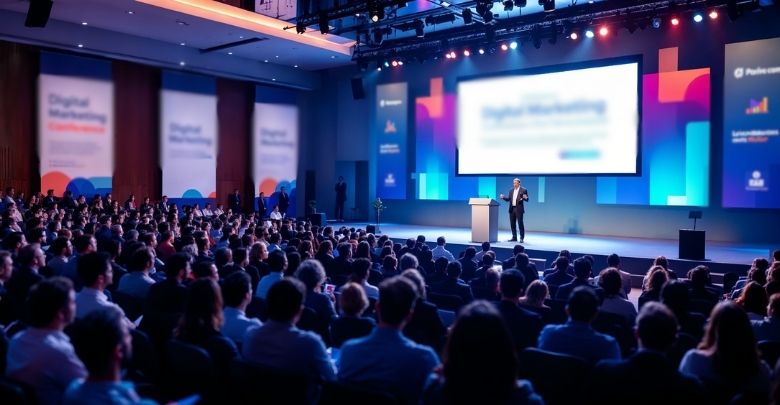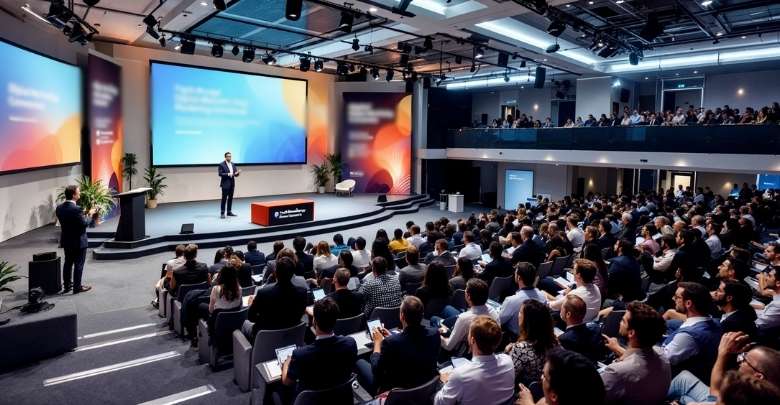Vancouver is a fun city where people gather to share ideas about money, work, and smart decisions. Many bright minds come here to meet others, learn new things, and enjoy events about the economy.
These conferences are full of helpful talks, tasty snacks, busy halls, cool papers, and exciting plans too. You’ll meet students, teachers, workers, or even someone sipping a coffee while chatting about business charts and money moves. So, how much does it cost to attend an economics conference in Vancouver?
The cost to attend an economics conference in Vancouver typically ranges from $200 to $1,000 CAD. A student ticket usually costs $100, while a professional ticket may cost more than $800 for an event with keynote speakers over several days. Costs vary based on venue, conference length, and included amenities.
You’ll learn smart tips, fun facts, and how to maximize your vacation in this article.
How Much Does It Cost to Attend an Economics Conference in Vancouver?
You can expect to spend anywhere between $200 to $1,000 CAD, depending on what the event offers and who it’s for. Student tickets are more affordable, starting at around $100, especially for single-day access with limited perks. On the other hand, multi-day events with big-name speakers, meals, and extras can go past $800 or more.
Venue Type and Location
A fancy hotel in downtown Vancouver will charge you more than a smaller school campus on the city’s quieter side. Big halls cost a lot, especially when they’re near landmarks, shops, or offer views of water and mountains. People love cool places, and organizers know those places often pull bigger crowds and set higher ticket costs.
Venues with better sound, big screens, or comfy chairs will always raise the price for those attending the whole event. Smaller spaces work fine too, but they don’t carry the same energy or resources as bigger locations downtown. When conferences in Vancouver happen in large halls, expect better service, nicer rooms, and of course, a higher entry price.
Number of Days
Longer events will obviously cost more because you stay longer, eat more, and take up more time from the organizers. A one-day pass might seem cheap, but add another two days and the price nearly triples with added stuff. It’s not just time—it’s the extra drinks, food, and care that bump up the total.
Three-day events often offer more speakers and chances to meet people, making them worth the extra dollars. Most full-length events also include things like guided tours or special evening mixers. This makes the experience better, but also means you’ll need to pay more for the full package.
Type of Attendee
Students usually pay less because organizers want young minds to attend, learn, and maybe return next year as speakers. They get student-only deals, fewer frills, and sometimes shorter access to events or side activities. Still, they can learn tons even with a cheaper ticket and a light lunch.
Professional attendees, however, get premium passes with full access to talks, panels, and networking lounges. They often represent their companies, so prices for them are higher due to added perks. These can include speaker meetups, better seating, and sometimes even free drinks at dinner socials.
Meal and Refreshment Options
Free coffee? Nice. Full lunch with dessert and salad bar? That’s extra. Food always changes the price more than people think.
Conferences offering full meal service include it in the price, which makes the ticket cost feel steep. If meals aren’t included, you’ll spend money nearby, but it won’t stack up as fast. Some events have snack bars or coffee stations, which can feel like tiny luxuries but do affect the overall pricing.
Guest Speakers and Special Panels
If a famous economist or author shows up to speak, the cost goes up, because that person doesn’t work for free. Big names pull more people, raise the value, and add buzz to the entire event, which helps ticket sales. But that buzz comes with a bigger price tag for the attendees joining those keynotes.
Panels that feature several experts or well-known voices will cost more since they demand more planning, equipment, and hosting. These panels often bring in media or press, which increases popularity but raises organizer spending. In the end, high-profile sessions will always mean higher ticket prices for you.
Provided Materials and Digital Access
Printed booklets, note pads, or branded bags seem small but add dollars to each registration. Online access to recordings also raises prices because someone has to edit and upload every talk. These things help you remember the event and study afterward, but they’re not free to produce.
Some conferences give you full video access for weeks, which makes the learning last longer than just the event. Others include apps or platforms where attendees can connect, share ideas, or download materials. All this tech support is useful, but the more you get, the more you’ll pay.
Season and Timing of the Event
Events in summer usually cost more due to tourism, expensive hotels, and warm weather drawing bigger crowds. Organizers need to book earlier and spend more on venues and staff when demand is high. You’ll feel the difference if you attend in July versus November or March.
Off-season conferences cost less because hotels offer better rates, and fewer people compete for the same spaces. While the weather may not be perfect, the savings can be worth it, especially for budget-focused attendees. That being said, some speakers may be harder to book during slower months.
What Can You Expect From an Economics Conference in Vancouver?
Economics conferences in Vancouver bring more than just numbers—they spark ideas, build friendships, and offer real-world insights you can use. These events welcome people from all walks, whether you’re a curious student or a seasoned expert. Here’s what you can truly expect when stepping into one of these unique gatherings.
Fresh Ideas and Real Discussions
Speakers share views that challenge what you know, turning simple charts into clear stories with meaning behind every number shown. People ask questions that spark more thinking, not just polite nods and sleepy eyes. Panels keep things moving with friendly debates, new voices, and lots of brain fuel. Expect fewer math classes, more mind-opening talks that link the economy to real lives.
Networking That Feels Natural
You’ll shake hands over coffee, not just business cards—chatting with people who care about what you actually think. Many come to connect, not just learn, and the vibe often feels easy and open. Group breaks or roundtables turn strangers into contacts without feeling weird or forced. Even quiet people find space to speak, meet others, and build friendships worth keeping.
Workshops With Real Value
Hands-on sessions help you understand tools, trends, or topics that once felt confusing, now made clear with easy steps. These aren’t long lectures; they’re short, focused, and often a little fun, using real-life examples you’ll remember. You might build a budget, break down policies, or even solve tiny puzzles together. It’s more like learning by doing instead of just watching slides flash by.
Exposure to Global Perspectives
Speakers fly in from all over—each one bringing stories, stats, and surprises that shift how you see things around you. The crowd often includes people from different countries, giving a new flavor to every talk and table. You’ll hear views shaped by different places, helping you compare and question what you once thought was normal. A simple topic like inflation can take on ten new meanings in minutes.
Unexpected Extras and Local Touches
You won’t just sit in a room all day; tours, city walks, and even local food might pop up in the plan. Some events include visits to markets, galleries, or beaches—letting you see Vancouver while still learning. Evening mixers may serve fresh seafood or sweets while small jazz bands play in the background. These extras help break the ice and remind everyone that fun has a seat at the table.
Student-Focused Tracks and Perks
Young minds get real attention—many events carve out tracks for students with easier talks, peer speakers, and mentorship chats. You’ll find tables filled with eager faces, budget coffee, and notes flying fast from shared laptops. Student discounts make the event easier to attend and allow access to nearly everything. These tracks help you grow without pressure, meet mentors, and build skills that matter beyond school.
Conversations That Continue Beyond the Event
People trade contacts, follow each other online, or form study groups and project teams that stay alive long after leaving. Some start podcasts, blogs, or even side businesses from talks that first began during a lunch break. Organizers often send post-event resources, recordings, and newsletters to keep you in the loop. The real value isn’t just what you learn—it’s what you keep building afterward.
Budgeting Tips for Attending a Vancouver Economics Conference
Heading to an economics conference in Vancouver doesn’t have to drain your wallet. With the right planning and some savvy decisions, you can enjoy all the perks without the hefty price tag. Budgeting smartly means more fun, less stress, and maybe even extra cash for exploring the city. Here’s how you can save money while still soaking in all the knowledge and networking opportunities.
- Early Bird Discounts: Buy your tickets as soon as they go on sale to snag early bird rates. These discounts can be significant, so it’s worth setting a reminder.
- Choose Affordable Accommodation: Consider staying in a hostel or booking a shared Airbnb instead of a pricey hotel. These options can cut down your lodging costs dramatically.
- Travel Smart: Look for flight deals and consider alternative airports if you’re flying. Using public transit in Vancouver can also save you a lot on commuting costs.
- Pack Your Meals: Bring snacks and a water bottle each day to avoid high-priced conference center food. Local supermarkets have great options for creating quick, healthy lunches.
- Share Expenses: Find a conference buddy for sharing rides, meals, or even accommodation. This cuts your expenses and you might make a new friend!
- Explore Sponsorship: Some employers offer professional development funds to cover conference costs. Check if your workplace has such a benefit and make use of it.
- Attend Virtually: If finding economics conferences in Vancouver is tough on your budget, check for virtual attendance options. Many conferences offer lower-priced or even free online access.
Are There Any Student Discounts or Financial Aid Options Available?
Yes, many economic conferences in Vancouver offer student discounts and financial aid options to help reduce attendance costs. For instance, the Canadian Economics Association (CEA) provides discounted registration rates for students who maintain current membership status. Additionally, the Productivity Partnership offers travel grants up to $1,000 CAD for students presenting papers or participating in special sessions at the CEA’s annual conference.
Beyond conference-specific assistance, students can explore broader financial aid opportunities. The University of British Columbia (UBC) and its donors offer various scholarships and bursaries to support students’ academic and extracurricular achievements. Furthermore, StudentAid BC provides loans, grants, and scholarships to help with post-secondary education costs. It’s advisable to check with individual conference organizers and educational institutions for the most current information on available discounts and financial aid.
Are Economics Conferences in Vancouver Worth the Investment?
Yes, economics conferences in Vancouver are worth the investment if you’re seeking growth, insight, and valuable new connections. These events go beyond academic talks—they spark curiosity, improve careers, and create memories with like-minded people. Even if you’re on a budget, the value of what you gain often outweighs the cost. Let’s explore what makes these conferences a smart move for students, professionals, and curious minds alike.
Learning From Real Experts
Speakers don’t just read slides—they tell stories, share failures, and explain what actually works in the world of economics. You’ll learn how theory meets practice through examples, jokes, and relatable details that help things stick. Big ideas become easier when explained by people who’ve lived through them and seen them play out. These talks are rich in meaning and usually stick with you far longer than a textbook chapter.
Better Career Opportunities
Networking is more than shaking hands—it’s about meeting people who may help shape your future or open new doors. Many attendees find internships, job leads, or mentors just by joining group chats or casual talks. You never know who you’ll sit beside. For many students and early professionals, the chance to attend an economics conference in Vancouver also becomes a stepping stone toward real-world exposure and long-term growth.
Confidence Building in Real Time
Asking questions in front of others or joining small group sessions helps you speak up and share your point of view. Confidence grows when you see others listen, nod, and respond with real interest and follow-up questions. You start to believe that your ideas matter and your voice belongs in bigger rooms. That shift in belief sticks and carries over into classes, work, and other new spaces.
Real-World Context for Economic Topics
Conferences break down tough ideas like inflation, policy, or debt with clear examples tied to real-life stories and outcomes. You’ll hear how numbers affect families, businesses, and even communities in surprising and simple ways. It helps you see beyond graphs and dive into what really matters to people in daily life. Understanding grows deeper when the subject becomes personal, not just theoretical or distant.
New Friends and Collaborators
Meeting someone from another country or school can turn into a long friendship or even a future team project. Sharing meals, walks, or even jokes between sessions often leads to real connections that grow over time. Events like mixers or late-night panels create easy space for friendships to form without pressure. These social wins often become the best part of your entire experience.
Inspiration and Fresh Motivation
You walk in curious and leave with a notebook full of ideas, action steps, and unexpected energy to keep going. Speakers often share the “why” behind their work, which lights a spark in people who may feel stuck. That energy spreads—people talk faster, laugh louder, and start thinking bigger by the end. Inspiration isn’t always loud, but it sticks quietly and keeps you moving forward.
Chance to Explore the City
Between sessions, you get time to walk the streets, try fun food, and see what makes Vancouver feel unique. Whether it’s a beach stroll or a food truck bite, every break becomes part of your memory. Exploring helps balance the heavy learning and gives your brain a little rest between intense discussions. You leave with city stories, not just notes and handouts from the conference bag.
Frequently Asked Questions About the Attendance Costing of an Economics Conference in Vancouver
Attending an economics conference in Vancouver can be a valuable experience, but costs can vary based on many factors. Whether you’re a student, a professional, or just curious, it helps to understand the details. Here are seven helpful FAQs to guide your planning.
What’s Included in the Conference Ticket Price?
Most conference tickets include access to sessions, speaker panels, and basic refreshments. Some also provide materials, welcome kits, or evening mixers. However, meals, workshops, and networking events might cost extra depending on the event’s scale and offerings.
Do Ticket Prices Change Closer to the Event Date?
Yes, ticket prices usually rise as the event approaches. Early bird registration often offers the best deal. Waiting too long could mean higher prices and fewer options for workshops, seats, or accommodation packages tied to the event.
Are Group Discounts Available for Economics Conferences?
Some conferences offer group rates for organizations, schools, or research teams registering together. These discounts help save money per person. It’s best to check with organizers early, especially for large academic or company groups planning to attend.
Do One-Day Passes Cost Less Than Full Access Passes?
Absolutely—one-day passes are often cheaper and a great option if you’re attending for a specific topic or speaker. These passes limit access to just that day’s sessions and don’t always include meals or networking events.
Are There Different Prices for Virtual Attendance?
Yes, virtual passes typically cost much less than in-person ones. You’ll get access to live streams or recordings, but miss out on physical perks. It’s a solid choice if you’re budgeting or can’t travel to Vancouver.
Are Workshop Fees Separate From General Registration?
In many cases, yes—special workshops, training sessions, or small-group seminars require an added fee. These are optional but useful. Costs vary depending on the workshop leader’s background, topic depth, and included tools or materials.
Do Conference Costs Vary by Time of Year?
Yes, pricing often depends on the season. Summer and early fall events are usually more expensive due to high demand. Hotel rates, travel prices, and venue availability all influence the final cost of attending.
Concluding Thoughts
Deciding to join an economics conference in Vancouver is more than just attending sessions and grabbing free coffee. It’s a chance to deepen your knowledge, connect with others, and even enjoy a vibrant city.
If you’re wondering how much does it cost to attend an economics conference in Vancouver, it really depends on your choices—from affordable student rates to more inclusive professional packages. Plan well and use smart budget tips, and you’ll find the investment truly worthwhile.








